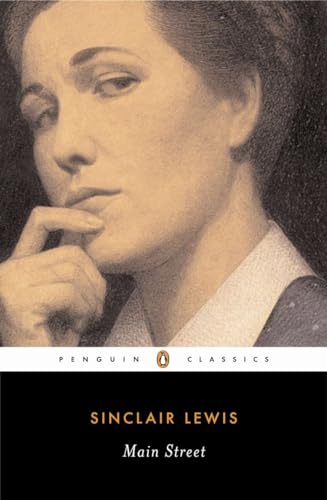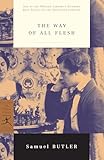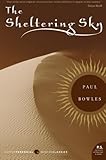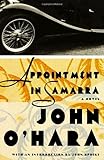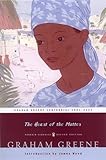Modern Library Revue is Lydia Kiesling’s irreverent, ongoing treatment of the Modern Library’s 100 best novels of the twentieth century. Lydia is a graduate of Hamilton College. She is an ardent book-lover and has spent the last two years working in the antiquarian book trade. The Modern Library project was recently born at her blog, Widmerpool’s Modern Library Revue.
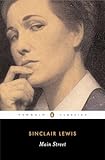 On occasion, my mom and other loved ones have gently suggested that I am a cranky sun of a gun. Sinclair Lewis is a panacea to people like me; I would have loved to hang out with him, drink to excess, and complain vociferously. This might help explain my belief that Lewis is one of our finest American novelists. He was not a particularly stylish or literary writer. A few of his novels were boring or bad. But he gave us a savage portrait of American attitudes in the early twentieth century, and he was, perhaps unintentionally, the most prescient of our authors.
On occasion, my mom and other loved ones have gently suggested that I am a cranky sun of a gun. Sinclair Lewis is a panacea to people like me; I would have loved to hang out with him, drink to excess, and complain vociferously. This might help explain my belief that Lewis is one of our finest American novelists. He was not a particularly stylish or literary writer. A few of his novels were boring or bad. But he gave us a savage portrait of American attitudes in the early twentieth century, and he was, perhaps unintentionally, the most prescient of our authors.
In Main Street, Lewis describes the American citizenry as
a savorless people, gulping tasteless food, and sitting afterward, coatless and thoughtless, in rocking-chairs prickly with inane decorations, listening to mechanical music, saying mechanical things about the excellence of Ford automobiles, and viewing themselves as the greatest race of the world.
The novel is about a woman named Carol, who starts out young and breathless and fey – an Anne Shirley with Modern Ideas. Carol goes to college, and then she gets a job. Like most of us, she discovers that working for a living is a drag. She meets a doctor, and they canoodle chastely. They get married, have relations in a tent, and go to live in Gopher Prairie, an up-and-coming Midwestern town. There it is necessary for Carol to comes face to face with American Values. She goes to parties with the smart set, who recite racist stories and complain about labor agitators. They judge her for lacking a foul something called “pep.” She fraternizes a little bit with immigrants, overpays the maid, admires Art, and thinks she yearns for city life. Carol is a Liberal Elitist. She tries to Reform the town, but not very hard. It doesn’t work, so she learns to play bridge. Everyone is watching her. She has a baby, and then she has enough. She goes to work in Washington, alone like a hussy. It’s a little better. Her husband comes to visit and respectfully woos her. Carol goes back to Gopher Prairie. She has another baby. Nothing changes. Life goes on.
If you are like me, a hating liberal so-and-so, to read Main Street is to experience the pyrrhic victory of feeling that you are right about everything. Most of Lewis’s novels are demoralizing like that, especially right before or after a U.S. election, when everyone feels distinctly uncharitable toward fifty percent of his neighbors and we have heard those eternal sore spots, taxes, immigration, and morals, argued into the ground in fatuous platitudes. Lewis was not a subtle writer, but I will make bold to say that we are not, in many ways, a subtle people. The misinformed xenophobia and racism of Gopher Prairie are alive and well in America today. We still exhibit a distasteful reverence for “pep” in our politicians; we embrace a down-home rhetoric that is not so very different from the skin-crawling turn-of-the-century boosterism. We still feel the meddling hand of religion in our politics. We still (well, until recently), erect hideous buildings across our beautiful country with unbridled enthusiasm. Like the upstanding folks in Lewis’s novels, we talk about Family Values and goose receptionists in the back room. We are Gopher Prairie, except with cell phones and The Real Housewives of Orange County.
If you think these ideas are tired, remember that Lewis wrote almost one hundred years ago, anticipating with strange accuracy the content of HuffPo or The Nation, as well as the often snobbish aversion of the Left for the Right. Sometimes it becomes necessary to shake yourself out of your high-minded ineffectual outrage and remember that some happy changes have in fact taken place since Lewis satirized those “regular Guys, the fellow with sticktuitiveness, that boost and get the world’s work done.” Big things like Civil Rights and the Pill, and smaller but still thrilling innovations like trousers for ladies.
Main Street is, I think, the slightest bit longer than it needs be. I suppose it was Lewis’ intention to really paint that picture of how boring and tedious the life in Gopher Prairie was for Carol or someone like her, but it sometimes feels like rather too many iterations of one conversation. I preferred Babbit, which is a similar story but shorter and told from a man’s perspective, and Elmer Gantry, which is about an evangelical preacher and filled me with a really bracing rage. In fact, I have read and enjoyed almost all of his novels, with the exception of something comically terrible called The God-Seeker. I have seen a couple of articles which describe Sinclair Lewis as a forgotten figure of American letters, and I think that is sad. He was an important chronicler of this country’s people and ideas – a prosy Fitzgerald of the middle class.


